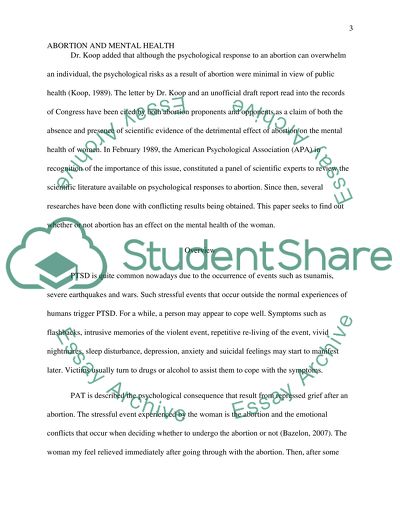Cite this document
(“Abortion and Mental Health Research Paper Example | Topics and Well Written Essays - 1750 words”, n.d.)
Retrieved from https://studentshare.org/psychology/1397555-abortion-and-mental-health
Retrieved from https://studentshare.org/psychology/1397555-abortion-and-mental-health
(Abortion and Mental Health Research Paper Example | Topics and Well Written Essays - 1750 Words)
https://studentshare.org/psychology/1397555-abortion-and-mental-health.
https://studentshare.org/psychology/1397555-abortion-and-mental-health.
“Abortion and Mental Health Research Paper Example | Topics and Well Written Essays - 1750 Words”, n.d. https://studentshare.org/psychology/1397555-abortion-and-mental-health.


